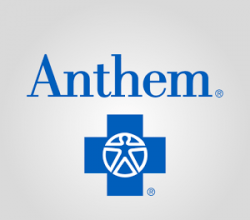Concussions, which are types of brain injuries, are caused by a direct impact or jolt to your head, or by a hit to your body that causes your head to move back and forth rapidly.
They can range from mild to severe injuries. Most people make full recoveries after a concussion.
10 Things You Could Experience After a Concussion
You can expect to experience symptoms after a concussion. You could experience just one or two symptoms or a number of different symptoms, depending on the severity of the concussion.
Also, be aware that symptoms can appear immediately or they can appear up to several days after the injury.
So, here are 10 potential things you could expect after a concussion:
- Loss of consciousness.
- A headache.
- Poor memory or concentration.
- Poor balance.
- Blurred vision.
- Sensitivity to light or noise, or both.
- Dizziness or vertigo.
- Sudden mood changes.
- Nausea or vomiting.
- Fatigue.
Treating Concussion
Most people have heard of the cocooning method for treating concussion, which involves sitting quietly in a dark room, avoiding sources of stimulation like electronic devices, until the symptoms disappear.
But cocooning may not be the best course of action to take. The concussion rehabilitation method known as active rehabilitation can be a much more effective and efficient approach for treating concussions.
The process involves both physical and mental therapy with the help of expert therapists.
Before you start exploring different treatment options, the first step after experiencing a concussion is to see a doctor.
Your doctor will ask you questions and perform tests, including a neurological examination, cognitive testing, and imaging tests.
How long does it take to recover from a concussion?
The recovery time from a concussion depends on the severity of the injury, but in most cases, recovery takes between seven and 10 days.
To ensure you recover well, ensure you follow your doctor’s instructions and explore the relevant forms of treatment.
If you have symptoms of concussion after a period of more than 10 days, you could have post-concussion syndrome. Although less common, if you do have post-concussion syndrome, it could take several months to recover.
Other Concussion Complications
Although also less common, several complications can occur after a concussion. Potential complications include:
- Post-traumatic headaches, which can last up to seven days after the injury.
- Post-traumatic vertigo, which can last for weeks or even months after the injury.
- Persistent post-concussive symptoms, which include dizziness, headaches, and difficulties with thinking, which persist for longer than three weeks.
- Second impact syndrome, which is very rare and involves experiencing a second concussion before the symptoms of the first concussion have been resolved. Second impact syndrome can result in rapid brain swelling and can be fatal.
Can you prevent a concussion from happening?
While you cannot prevent all accidents that can cause concussions from happening, you can take steps to lower the risk.
For instance, high-risk sports like football, soccer, and boxing can cause concussions. So, by using the right safety equipment and ensuring activities are supervised, you can lower the risk of concussion.
Motor vehicle accidents are another common cause of concussion, so by always driving safely and remembering to take safety precautions like wearing a seatbelt, you can reduce the chances of an accident occurring those results in a concussion injury.
Other ways of reducing the risk of concussions include:
- Wearing a helmet when doing things like riding a bike or a horse, or skateboarding.
- Putting up handrails on staircases to help prevent falls.
- Putting grab bars and non-slip mats in the bathroom to help prevent slips and falls.
- Removing trip hazards in the home or at the workplace.
- Improving lighting conditions in the home or at the workplace.







